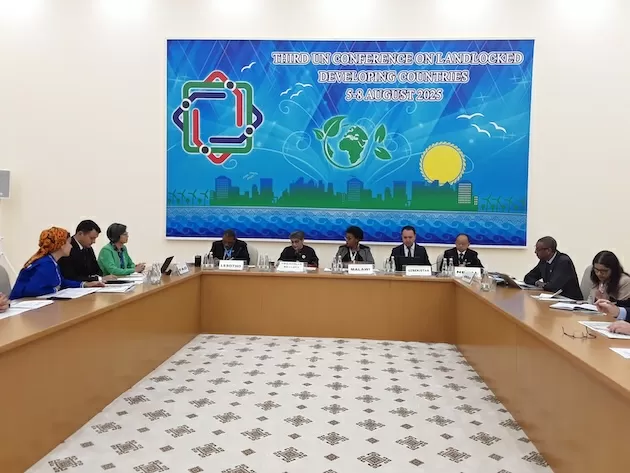Agriculture is a vital sector in landlocked developing countries, with over half of the population, around 55 percent, relying on it as their primary source of employment. This percentage is significantly higher than the global average of 25 percent, highlighting the critical role that agriculture plays in these countries. However, despite its importance, the agriculture sector in developing landlocked countries is facing a significant crisis in terms of food security. With 32 landlocked developing countries (LLDCs) in the world, this situation is a pressing issue that needs immediate attention and action.
Food security is a term that refers to the availability, access, utilization, and stability of food sources for individuals, households, and communities. It is a basic human right that ensures individuals have access to sufficient, safe, and nutritious food to meet their dietary needs and lead a healthy life. Unfortunately, for many people living in LLDCs, this right is being threatened due to the deterioration of food security.
One of the major factors contributing to the decline in food security in these countries is their geographical location. Being landlocked means that these countries have no direct access to the sea, making it challenging to transport goods, including food, in and out of the country. This lack of access to international markets can lead to limited trade opportunities, resulting in higher prices for imported food products and lower prices for exported goods, making it difficult for farmers to earn a decent income.
Moreover, most LLDCs are located in areas prone to natural disasters such as droughts, floods, and extreme weather conditions, which can have devastating effects on agricultural production. Climate change has only worsened the situation, with unpredictable weather patterns and more frequent natural disasters affecting crop yields and food production. This not only affects the food security of the local population but also has a significant impact on their economy and overall development.
Another issue that contributes to the deterioration of food security in LLDCs is the lack of investment in the agriculture sector. Many of these countries face challenges in terms of limited resources and technologies, which can hinder the growth and productivity of their agriculture industry. The lack of modern farming techniques, agricultural inputs, and infrastructure can lead to low crop yields and poor quality produce, making it difficult for farmers to compete in the global market. This, in turn, can have a ripple effect on food security, as the country becomes reliant on imported goods, rather than being self-sufficient.
As a result of these challenges, the food security situation in LLDCs is becoming a catastrophe, with millions of people facing hunger and malnutrition. This not only affects their physical well-being but also their mental and emotional health, as food insecurity can lead to anxiety, stress, and other psychological problems. Furthermore, the lack of access to proper nutrition can have long-term consequences, such as stunted growth and developmental issues in children, affecting the country’s future generation.
It is clear that addressing the issue of food security in LLDCs is crucial for the well-being and development of these nations. There is a need for immediate action and collaboration between these countries, international organizations, and the global community to find sustainable solutions to this unfolding catastrophe.
First and foremost, there is a need for increased investment in the agriculture sector in LLDCs. This could include providing financial support, technology transfer, and capacity building to farmers, as well as developing infrastructure and promoting research and development in the agricultural industry. This would not only improve the productivity and quality of crops but also create job opportunities and boost the economy.
Additionally, there is a need for improved trade policies and infrastructure to facilitate better access to international markets. This would help LLDCs to diversify their export products and increase their competitiveness in the global market. In turn, this would enable them to earn a decent income, reinvest in their agriculture sector, and improve their food security situation.
Furthermore, addressing the impacts of climate change is vital for the long-term sustainability of the agriculture sector in LLDCs. This could include promoting sustainable farming practices, using drought-resistant seeds, and implementing early warning systems for natural disasters. It is crucial to raise awareness and involve local communities in these efforts to build resilience and adapt to the changing climate.
In conclusion, it is evident that food security is a critical issue in landlocked developing countries, with the majority of the population relying on the agriculture sector for their livelihoods. The deterioration of food security in LLDCs is a pressing issue that requires immediate attention and action



